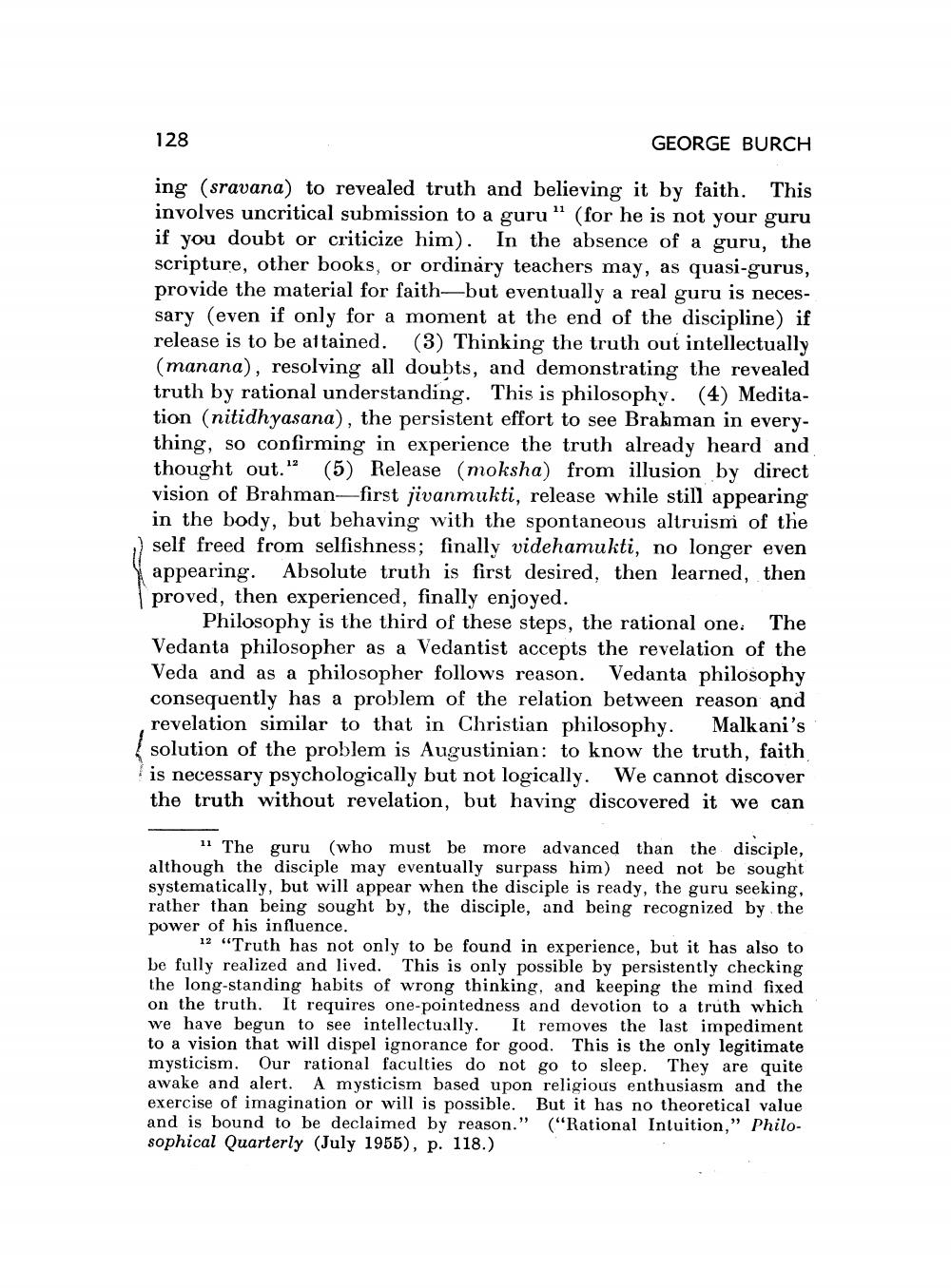Book Title: Contemporary Vedanta Philosophy Continued Author(s): George Burch Publisher: George Burch View full book textPage 7
________________ 128 GEORGE BURCH ing (sravana) to revealed truth and believing it by faith. This involves uncritical submission to a guru ” (for he is not your guru if you doubt or criticize him). In the absence of a guru, the scripture, other books, or ordinary teachers may, as quasi-gurus, provide the material for faith—but eventually a real guru is necessary (even if only for a moment at the end of the discipline) if release is to be attained. (3) Thinking the truth out intellectually (manana), resolving all doubts, and demonstrating the revealed truth by rational understanding. This is philosophy. (4) Meditation (nitidhyasana), the persistent effort to see Brahman in everything, so confirming in experience the truth already heard and thought out." (5) Release (moksha) from illusion by direct vision of Brahman—first jivanmukti, release while still appearing in the body, but behaving with the spontaneous altruism of the 1) self freed from selfishness; finally videhamukti, no longer even appearing. Absolute truth is first desired, then learned, then proved, then experienced, finally enjoyed. Philosophy is the third of these steps, the rational one. The Vedanta philosopher as a Vedantist accepts the revelation of the Veda and as a philosopher follows reason. Vedanta philosophy consequently has a problem of the relation between reason and revelation similar to that in Christian philosophy. Malkani's solution of the problem is Augustinian: to know the truth, faith is necessary psychologically but not logically. We cannot discover the truth without revelation, but having discovered it we can 11 The guru (who must be more advanced than the disciple, although the disciple may eventually surpass him) need not be sought systematically, but will appear when the disciple is ready, the guru seeking, rather than being sought by, the disciple, and being recognized by the power of his influence. 12 "Truth has not only to be found in experience, but it has also to be fully realized and lived. This is only possible by persistently checking the long-standing habits of wrong thinking, and keeping the mind fixed on the truth. It requires one-pointedness and devotion to a truth which we have begun to see intellectually. It removes the last impediment to a vision that will dispel ignorance for good. This is the only legitimate mysticism. Our rational faculties do not go to sleep. They are quite awake and alert. A mysticism based upon religious enthusiasm and the exercise of imagination or will is possible. But it has no theoretical value and is bound to be declaimed by reason." ("Rational Intuition," Philosophical Quarterly (July 1955), p. 118.)Page Navigation
1 ... 5 6 7 8 9 10 11 12 13 14 15 16 17 18 19 20 21 22 23 24 25 26 27 28 29 30 31 32 33 34 35 36
